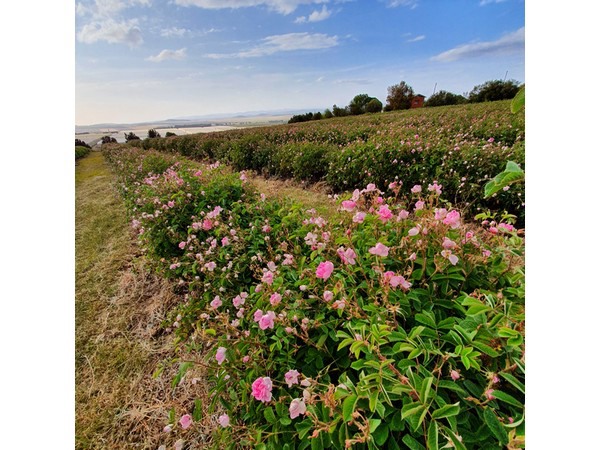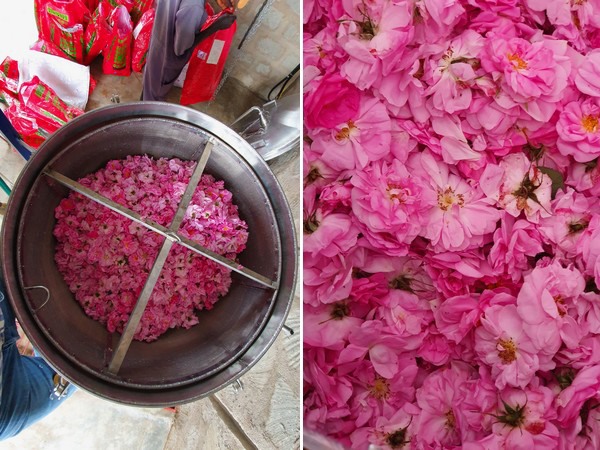At Uhuru Flowers in Kenya, their passion for growing cut roses brought them to explore a new business: growing Rosa Damascena for the production of rose water and oil. Since the crop is not really grown in Africa, it took owner Ivan Freeman quite some time to figure out the species’ growing habits on Kenyan soil. After several trials, they are now producing and even exporting the rose oil. “The project is still in the early stages but we are pleased with how it is working so far.” Now, they have around 6 hectares planted and 3 hectares that are producing and certified organic.

Why Rosa Damascena?
The main product of Uhuru Flowers is the cut rose, which they are growing in the greenhouses on their land. On the remaining land, they grow arable crops and they have been looking for a perennial crop that was more in line with their cut flower business, Ivan explains. “I came across the idea of growing Rosa Damascena for oil and started to investigate why it is not really grown in Africa.” In 2015, they managed to obtain some plant material and started trials on their land.
Challenges
Since it is a new crop, not only for Ivan but also for the Kenyan land, the process was long. “It took us a long time to figure out how to grow properly these rose varieties in our conditions and make them flower twice in a year. Once we felt we had mastered the growing, we needed to bulk up the plant material which also takes a long time. There has been a lot of new things to learn and surprisingly few resources. Once we were able to make our first batch of oil we had to send it for analysis and fortunately, it is of very good quality. The next challenge was finding markets as it is mainly used in the cosmetics industry.”

Export
Despite the project being still in the early stages, Ivan is pleased with how it is working so far and they even exported some products already. “We have sold the oil in Germany, Russia and have recently sent samples to Japan with extremely positive feedback. The rose water is bulkier but we have found a reliable local market for it with a company making beverages (rose and cucumber tonic water).
Future plans
Going forward Ivan intends to continue to expand their production area and they have plans to roll the crop out as a cash crop for the small-scale farmers that surround them. "It could be a great income generator for them as it requires little input and could be grown as a protective hedge around their farms. We would process and market it on their behalf. All in all, we are looking forward to a rosy future."
For more information
Uhuru Flowers Ltd
Ivan Freeman
Email: [email protected]
www.uhuruflowers.com
